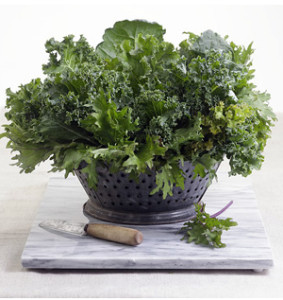
I was wondering about freezing vegetables. My first concern was: ‘If I buy organic Kale at Costco, am I losing nutrients’?
Ya see, just like you, I buy Kale at the store and within days, (sometimes up to a week) it goes bad. After throwing out package after package… I thought really? Really?
So when I saw the organic frozen Kale I grabbed it. But after realizing that not every Costco carries it… I did one better. I went to Jimbo’s, got their biggest bag of Kale/carrots and tossed it into the freezer. And now every morning I stick a handful of Kale, 4 slices of banana, an apple and cinnamon, along with either coconut water, ph balanced water or coconut creamer, into the cup and buzzzzzz my way into breakfast. Best breakfast ever! And I do that Monday thru Friday which gives me room on the weekend for something more interesting!
So back to my research. There, as always are many opinions as there are people, on the web. Some say up to 6 months, you aren’t losing any nutrients.
If we point to The National Center for Home Food Preservation, we get an entire page dedicated to freezing food. And while they recommend you blanche your veggies, other ‘experts’ say that if there’s any nutrients lost, it’s in that process.
Well, I don’t cook the Kale. I throw it into my smoothie frozen. So, I’m thinking that isn’t an issue for me.
Eating Well is a resource I look to for another opinion. They don’t like canned fruits and vegetables… but they’re ‘down with’ freezing: “Fruits and vegetables chosen for freezing tend to be processed at their peak ripeness, a time when—as a general rule—they are most nutrient-packed”.
About the blanching we talked about earlier? They explain why it’s necessary…
While the first step of freezing vegetables—blanching them in hot water or steam to kill bacteria and arrest the action of food-degrading enzymes—causes some water-soluble nutrients like vitamin C and the B vitamins to break down or leach out, the subsequent flash-freeze locks the vegetables in a relatively nutrient-rich state”.
I know many people are worried about cooking fresh vegetables. Well, here’s a tip: If you want to boil? Use very little water. Think of steaming instead. And if there’s water left on the bottom of your pan? Add it to a sauce. That’s right. Take those nutrients that without this, would be lost and use them! Boil your pasta in that same water? Then you’ve got a liquid that will thicken sauces!
Ok?
YES CHEF!
Al righty then. Back to fresh vs. frozen. Are fresh veggies off the shelves better than frozen? Here’s what they think:
“Fruits and vegetables destined to be shipped to the fresh-produce aisles around the country typically are picked before they are ripe, which gives them less time to develop a full spectrum of vitamins and minerals. Outward signs of ripening may still occur, but these vegetables will never have the same nutritive value as if they had been allowed to fully ripen on the vine. In addition, during the long haul from farm to fork, fresh fruits and vegetables are exposed to lots of heat and light, which degrade some nutrients, especially delicate vitamins like C and the B vitamin thiamin”.
Wow! Generally picked before they are ripe? But they look ripe? Really? Really?
I would think we have a tremendous advantage living in San Diego, or California in general, don’t you? We get great locally grown organic fruits and veggies year round.
But it’s interesting to hear that fruits and veggies that look ripe may not have been given the proper time to develop a full spectrum of vitamins and minerals. (There are more questions to be asked, but that’s a blog for another day).
That’s probably why I always hear people in the nutrition world saying: No matter how good you eat? You’ve got to take your supplements. Hmmmmm…..Hmmmmmmmm…
Happy Eating,
Chef Marian